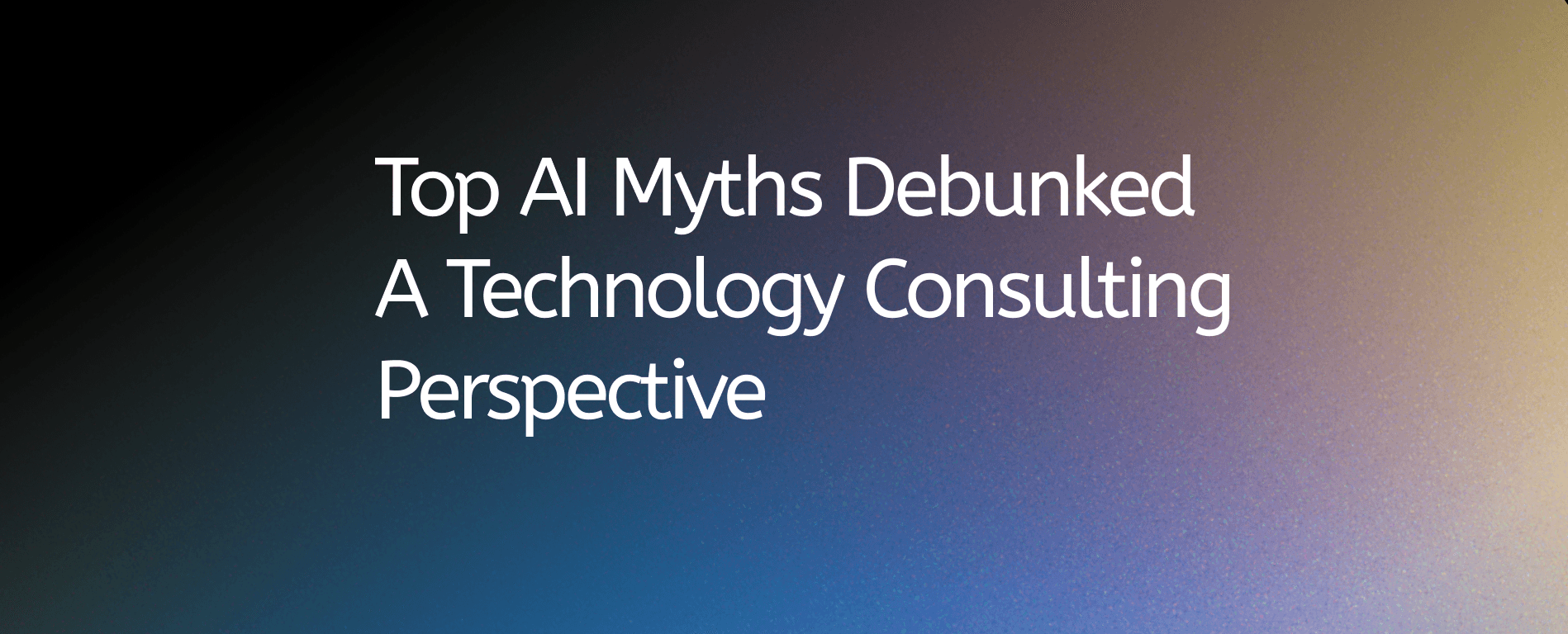Top AI Myths Debunked: A Technology Consulting Perspective
As a technology consulting firm specializing in AI/ML, data science, and technology services for federal agencies and commercial clients, we often encounter misconceptions about artificial intelligence. In this post, we'll address some of the most common AI myths and provide clarity based on our experience in the field.
Myth 1: AI will replace all human jobs
Reality: While AI is transforming many industries, it's creating new job opportunities rather than eliminating human roles entirely. In our work with federal agencies and commercial clients, we've seen AI augment human capabilities, allowing professionals to focus on higher-value tasks that require creativity, emotional intelligence, and complex decision-making.
Myth 2: AI systems are completely objective and unbiased
Reality: AI systems are trained on data collected and curated by humans, which can inadvertently introduce biases. As consultants, we emphasize the importance of careful data selection, regular audits, and diverse teams to mitigate bias in AI solutions for both government and private sector applications.
Myth 3: AI can solve any problem instantly
Reality: While AI and machine learning are powerful tools, they're not magic wands. Effective AI solutions require careful problem definition, high-quality data, and often significant computational resources. Our data scientists work closely with clients to set realistic expectations and develop tailored AI strategies that align with specific business or agency goals.
Myth 4: AI systems can think and reason like humans
Reality: Current AI technologies, including those we implement for our clients, are designed for specific tasks and lack the general intelligence and consciousness of humans. They excel at pattern recognition and data processing but don't possess true understanding or emotional capacity.
Myth 5: Implementing AI is too complex for most organizations
Reality: While AI implementation can be challenging, it's becoming increasingly accessible. Our consulting approach focuses on demystifying AI for federal agencies and commercial clients, providing scalable solutions that can be integrated into existing workflows and systems.
Myth 6: AI, machine learning, and deep learning are all the same thing
Reality: While these terms are often used interchangeably, they represent distinct concepts within the field of artificial intelligence:
Artificial Intelligence (AI) is the broadest term, encompassing any technique that enables computers to mimic human intelligence.
Machine Learning (ML) is a subset of AI that focuses on algorithms that can learn from and make predictions or decisions based on data.
Deep Learning is a specialized subset of machine learning that uses neural networks with multiple layers (hence "deep") to analyze various factors of data.
By debunking these myths, we hope to create a more accurate understanding of AI's capabilities and limitations. As technology consultants, our goal is to help organizations leverage AI effectively, ethically, and in ways that truly add value to their operations and services.

